Dunmurry Manor: 'Irreparable damage' has been done
- Published
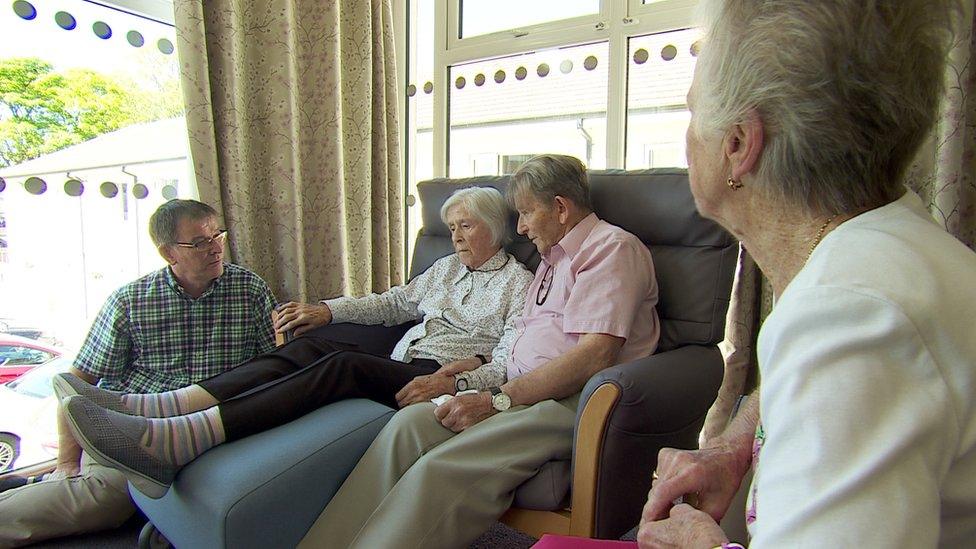
Neil's mother Joan has been a resident at Dunmurry Manor for two and a half years.
A man whose mother is a resident at Dunmurry Manor says "irreparable damage" has been done to the care home.
This follows a report by the Commissioner for Older People into care standards at the Belfast home.
Neil Wylie's 88-year-old mother Joan has been a resident at Dunmurry Manor for two and a half years.
He described the past few weeks as horrific as families and staff were left to pick up the pieces.
Staff told the BBC that they had been verbally abused by people on the street, excrement had been left on cars and their vehicles damaged.
An investigation into the care home in June found a "horrific catalogue of inhuman and degrading treatment, with many spending their last few months living in appalling circumstances."
The Department of Health has announced a series of actions to address failings at Dunmurry Manor, including commissioning a private consultancy firm to scrutinise the home's defects.
According to Mr Wylie some of the descriptions in the report were alien to him and to other families.
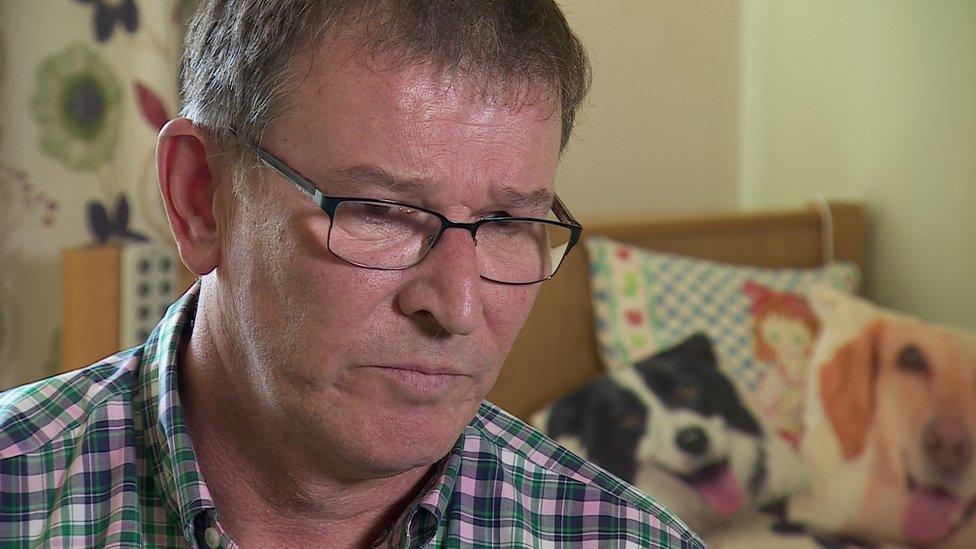
Neil Wylie's mother has been a Dunmurry Manor resident for two and a half years
Meanwhile Olive Macleod the chief executive of regulatory body the RQIA said that she is disappointed with how the commissioner, Eddie Lynch, conducted the investigation.
She claims the investigation ignored evidence provided by her organisation.
'Disappointing'
"My team and I were interviewed for around 26 hours. We provided many arch lever files of information.
"The commissioner has chosen to interpret that information in a specific way. When I challenged that, it just wasn't accepted."
Ms Macleod also challenged the commissioner's findings of physical and sexual abuse.
While she accepts that incidents of sexual abuse between patients did occur she would prefer to describe it as disinhibited behaviour.
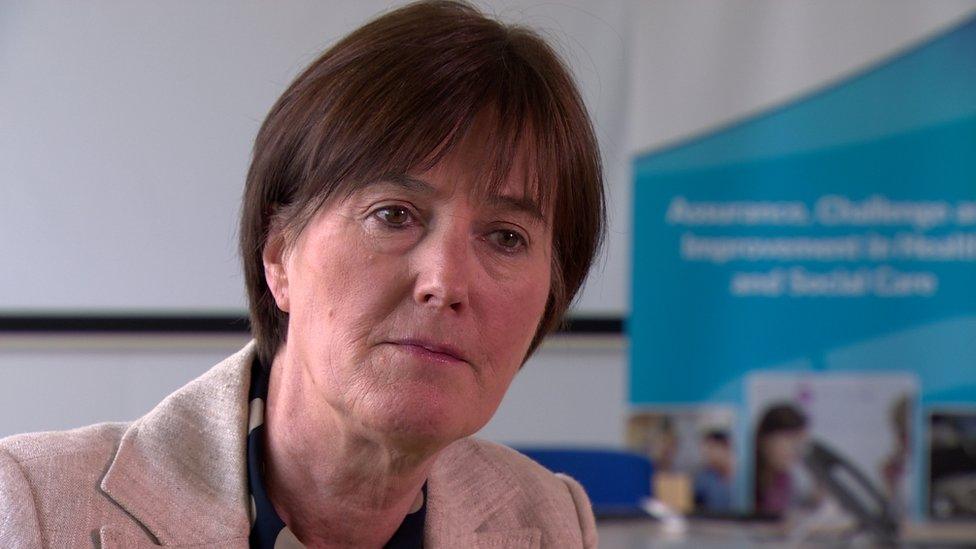
Olive Macleod, Chief Executive of the regulatory body the RQIA.
"What was reported to us was disinhibited sexual behaviour by both male and female patients and that behaviour can be a symptom of distress that you see in people with dementia.
"It was reported to the safeguarding board and it was managed. There was one particular patient that was very challenging in there.
"I don't believe there was any sexual predator in that home. It was very distressing for those families particularly the females who were subjected to it but is also a common feature in homes."
The regulator said that when it came to responding to complaints or following up they acted within the legal time frame.
However, Ms Macleod accepted that giving 28 days for an organisation to improve their ways is perhaps too long.
She also said that while the commissioner carried out one investigation over 16 months the RQIA had carried out over 1200 inspections.
"Media storm"
Ms Macleod regretted not arranging a face to face meeting with the commissioner during the investigation.
She admitted to not having met all of the families in the report as she had been caught up in what she described as the "media storm".
In a statement the Commissioner for Older People for Northern Ireland said: "My report is the result of an independent statutory investigation. It was undertaken over 16 months and took onboard significant advice from professional experts throughout.
"A complete and thorough response to my report will take time to complete and I expect the Relevant Authorities to focus on how they will address my recommendations to improve the care of older people in residential and nursing settings."
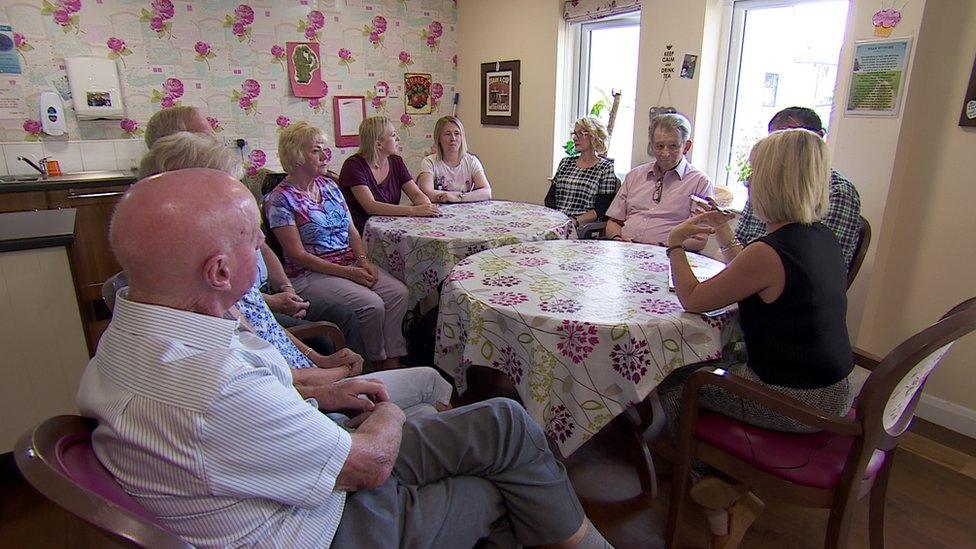
Representatives of eight Dunmurry residents met with the BBC to speak about the other side of the Dunmurry Manor story
Representatives of eight residents met the BBC to give what they described as the other side of the Dunmurry Manor story.
Lynn Ross's mother has been a resident in the home for 12 months and while the negative publicity was difficult, she believed things have changed for the better.
Helen Bell said the new management team had turned things around.
"The home is clean, as is my mother and her room. We want the public to know the home is different and we wouldn't keep our loved ones in a place that wasn't safe."
The families admit that in the past there may have been serious isolated incidents. Noel Wylie, however, questioned why, if things were so bad, families didn't remove their loved ones.
"If you had a loved one in here and they lost a lot of weight. Would you accept it ok? I certainly wouldn't.
"I can categorically say that if anything happened to my mother, she wouldn't be here.
"We chose here for her to spend her final days."
- Published4 July 2018
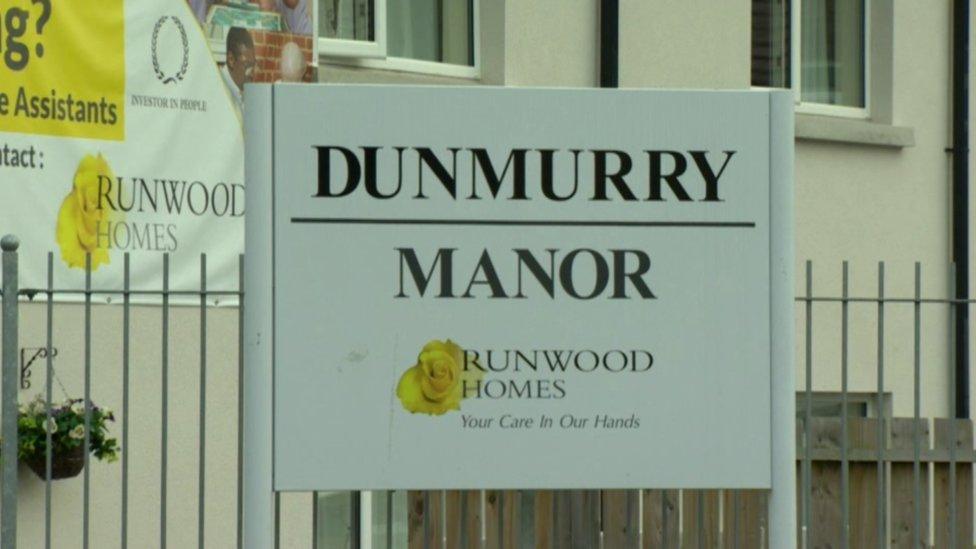
- Published27 June 2018
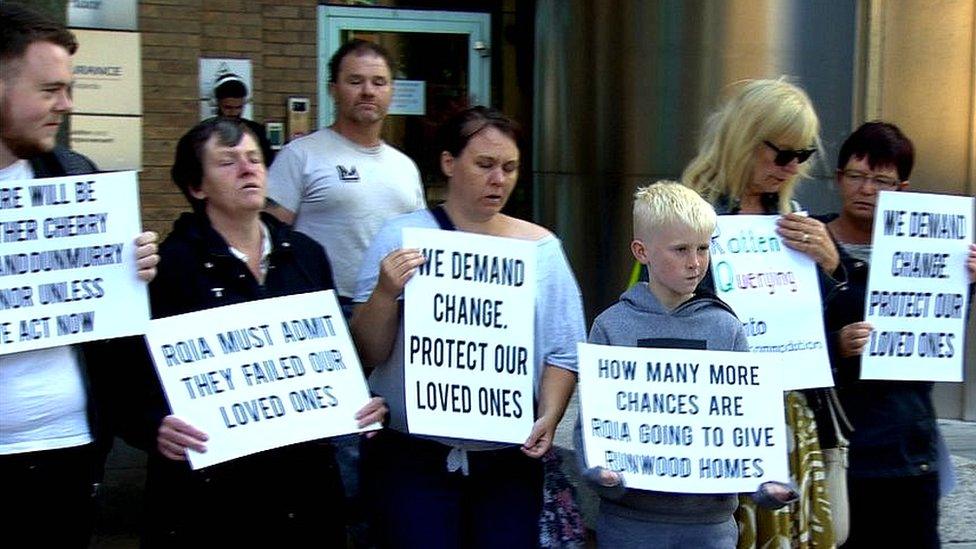
- Published13 June 2018
